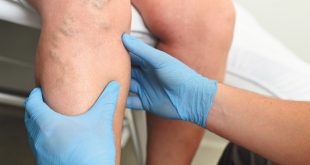 When you’re booking that flight, choosing the perfect hotel, and planning your vacation activates… do you also look for medical care, the proximity to a hospital or urgent care clinic at your destination? For some families, being close to acute medical care is just as important as a beach front view is for others. If you are in the Leesburg area and find yourself in need of medical attention, Dr. Ion and her staff at Florida Primary Care Group are happy to help. If you’re traveling away from Leesburg add these important health care items to your packing list…
When you’re booking that flight, choosing the perfect hotel, and planning your vacation activates… do you also look for medical care, the proximity to a hospital or urgent care clinic at your destination? For some families, being close to acute medical care is just as important as a beach front view is for others. If you are in the Leesburg area and find yourself in need of medical attention, Dr. Ion and her staff at Florida Primary Care Group are happy to help. If you’re traveling away from Leesburg add these important health care items to your packing list…
If you’re preparing to travel you may need to have more health-related information on hand than usual, since some destinations continue to require proof of COVID-19 vaccination.
As you are packing, take photos of your important health documents AND your passport, drivers license and birth certificate and email the photos to yourself. And a trusted friend. Or two. Bring the paper copies along, but in the event the paper copies are lost, you have digital copies readily accessible.
Here are six types of health information travelers may need, depending on their destination and medical condition.
1. COVID-19 Vaccination Card
While some U.S. cities have required proof of vaccination to participate in activities like indoor dining, those rules are rapidly being dropped as the recent COVID-19 surge abates. But many countries and the major cruise lines still require proof and/or a negative COVID-19 test. At least two cruise companies — Grand Circle Cruise Line and Regent Seven Seas Cruises — require passengers to show their original paper vaccination card.
Carrying a paper and digital vaccination record is especially important when traveling internationally. The rules and regulations are changing all the time. Imagine being on the flight where face mask status changed IN FLIGHT. Digital copies of all your health records just makes sense.
2. Proof of Other Vaccinations
Americans traveling to certain countries may want to carry the yellow paper card (no digital version exists) recording the vaccinations, they’ve had — for hepatitis, for example, typhoid or yellow fever — that are recommended in other parts of the world. The “Destinations” page on the Centers for Disease Control and Prevention’s (CDC) website provides recommended vaccinations and health notices by country. While you don’t generally have to show official proof of those vaccinations, you do for certain diseases in certain countries. Tanzania, for instance, requires proof of vaccination for yellow fever.
3. COVID-19 Test Results
Some countries and cruise lines require that travelers show a negative COVID-19 test. Even the United States requires it for reentry into the country, regardless of citizenship or vaccination status. Showing an image or email is usually sufficient, but you should carry a print copy as a backup.
4. List of Your Medications and Copies of Your Prescriptions
Carry a list of your prescription medications and dosages, on paper and digitally. This is one of the first things a medical professional is likely to ask you about if you have a health emergency. The same goes for copies of your prescriptions; bring them in case you lose or run out of your medicine. You also can keep the information on your phone’s lock screen or on a wearable device Even if you don’t speak the local language, many medicines and prescriptions translate well.
5. List of Your Allergies
Carry a list of any allergies or chronic health conditions that might be important to a health professional in an emergency. Consider creating a laminated card to carry in your wallet and put the information on your phone.
6. Health Insurance Information
U.S. health insurance policies don’t necessarily cover you overseas but check with your insurance provider. (Medicare, for example, doesn’t.) If you have private insurance or buy special travel insurance, you don’t need to print the entire policy, but make sure you carry a copy of your insurance card and know where to find the policy on a website or app. Many hospitals overseas, especially private hospitals, may not take you without proof of insurance.
Write down and email yourself the policy number and your insurer’s contact information. Your insurer is likely to have a number you can call when you’re away from home to get guidance on handling a health issue and advice on filing a claim when you return. For example, you may need to pay for medication out of pocket and then file a claim when you return.
This Summer, the best advice is to enjoy your time with family, relax, but be extra cautious and proactive about your health during this time of year.
Adina M. Ion M.D.
352-742-1171
LRMC Medical Plaza
705 Doctors Court
Leesburg, FL 32748
 Central Florida Health and Wellness Magazine Health and Wellness Articles of the Villages
Central Florida Health and Wellness Magazine Health and Wellness Articles of the Villages



